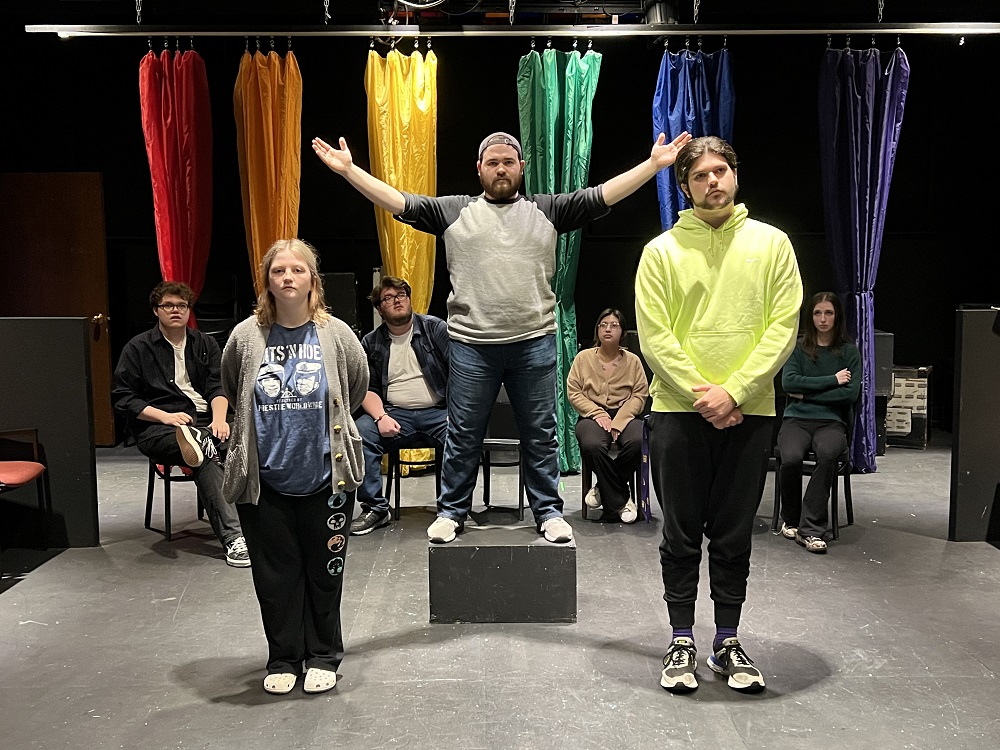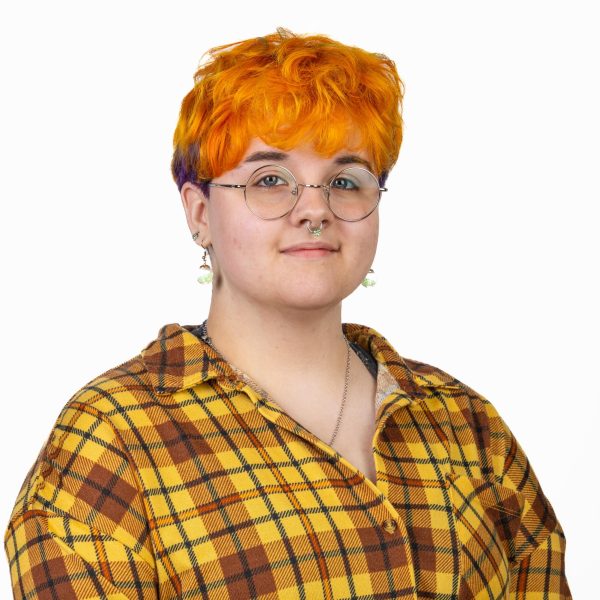This past weekend, the department of global languages and theatre arts presented “The Laramie Project,” a true story of LGBTQ+ history, small-town culture and the effects of hate crime.
“The Laramie Project,” created by Moisés Kaufman and the Tectonic Theatre Project and premiering in February 2000, was a documentation of the murder of Matthew Shepard in Laramie, Wyoming. Shepard was a gay student at the University of Wyoming who was kidnapped, robbed and assaulted in 1998. His assailants, two other local young men, left him tied to a fence overnight in freezing temperatures. He was found 18 hours later, and he died in the hospital days after the assault despite efforts from first responders and medical staff.
Members of the Tectonic Theatre Project went to Laramie several times in the aftermath of Shepard’s murder to gather information. They conducted over 200 interviews with Laramie residents to gauge the effects and responses in the community. Some interviewees were close to the case, and others were used to build an idea of the town’s culture.
These interviews, journal entries from the actors, media coverage and press releases were compiled into a script for a type of documentary show called verbatim theatre. One scene features a Laramie resident urging the actors to use the right words and “say it correct” when recounting the story of their town, a quote that particularly illustrates the importance of telling this story verbatim instead of adapting it into a standard plot.
“The Laramie Project” was performed in the Wilson Hall Studio Theatre from Feb. 29 to March 3. R. Wayne Shields-Hogue, administrative assistant in the department, suggested putting the show on this season and was selected as the director. Eight student actors played a rotation of characters, including Laramie residents and Tectonic Theatre Project actors, from the large-scale interview process that the show was based on. The cast and crew began production on Jan. 22.
In a department press release on Feb. 14, Abby Meadows, cast member and sophomore musical theatre major, said she enjoyed working on the project.
“I’ve had an amazing time working on ‘The Laramie Project,’” Meadows said. “It has been a very eye-opening experience for all of us… I think it’s something that Murray definitely needs to see.”
Zoie Overby, cast member and junior wildlife and conservation biology major also discussed the production’s impact in the department press release.
“(‘The Laramie Project’ is) not something I ever really expected to do on a college campus, just like the weight of the story that we’re telling,” Overby said.
Laramie, like Murray, is a small college town. Stories like this are important in communities like ours because they offer perspective. In 1998, Laramie had a substantial gay and lesbian community, but they lived by a “don’t ask, don’t tell” policy that came into question in the aftermath of Shepard’s death. “The Laramie Project” strives to show that even in the wake of tragedy, small towns are not defined by hate and have the ability to change.
“These are still issues that we face today,” Shields-Hogue said. “I think the original idea and thought process of the actors who created this was spreading a message. Now, when people direct it and perform it, they’re getting to continue spreading that message — and it is a message of hope.”
This year’s production of “The Laramie Project” incidentally follows the death of Nex Benedict in Oklahoma. Benedict was a 16-year-old nonbinary student who died on Feb. 8 after being attacked in a school bathroom the day before. Many similarities can be drawn between Shepard and Benedict’s deaths, and the fact that a tragedy like that can still happen 26 years later shows why the Laramie Project has not lost its relevance.





























































































